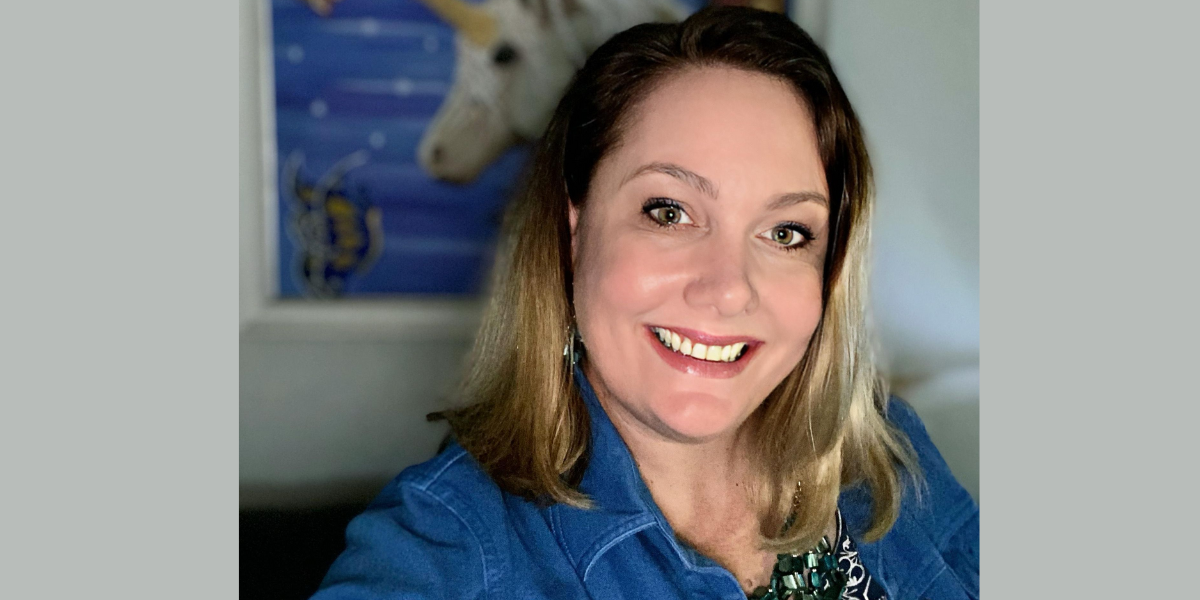How Claire Pickens Turns Pet Lovers into Funded Entrepreneurs with Her 8-Step Blueprint

After building and selling her own pet business, climbing the corporate ladder, and earning an EMBA, Claire Pickens realized her true calling wasn’t in boardrooms—it was beside entrepreneurs. In this Wantrepreneur to Entrepreneur Spotlight, Claire shares how burnout became her breakthrough, leading her to found Claire-ity Group, where she helps veterinarians and pet service pros secure funding and reclaim their futures. With a proprietary 8-step method and a deeply human approach, Claire transforms business planning into empowerment, proving that the most powerful plans protect more than profits—they preserve identity, purpose, and the courage to begin again.
Hi, Claire Pickens! Thanks for joining us today. Tell us about your business. Who do you serve, how do you serve them, and what's the impact that your business and work makes?
At Claire-ity Group LLC, I help veterinarians and pet service entrepreneurs turn their vision into reality by creating bank-ready business plans that actually get funded. My clients are passionate professionals – veterinarians, pet groomers, boarding operators, and trainers – who have the heart and expertise to serve animals but need a partner to help them navigate the business planning process.
I serve as their strategic partner and translator, taking their deep knowledge of animal care and transforming it into compelling business cases that banks understand and approve. My clients typically secure loans ranging from $650K to $2M, but more importantly, they gain the confidence and clarity to move forward with their dreams.
The impact extends far beyond individual businesses. Every plan I write represents a future veterinary practice or pet service that will care for thousands of animals and serve countless pet-owning families. I'm not just helping entrepreneurs get funding – I'm helping create the infrastructure that keeps our beloved pets healthy, happy, and well-cared for in communities across the country. When a veterinarian opens their dream practice or a groomer launches their business, they're filling a vital need that directly improves both animal welfare and quality of life for pet owners.
Tell us about the moment you finally felt like you went from wantrepreneur to entrepreneur.
My first moment was years ago when I took the leap to build my own pet business from the ground up. I designed every aspect of it, wrote my own business plan, and successfully grew it to the point where I could sell it. That felt like validation – I could do this entrepreneur thing.
But then I got seduced by the corporate ladder. I climbed it successfully, earning my EMBA (Executive MBA - twice the credit hours of a typical MBA) and advancing through the ranks. On paper, everything looked perfect. In reality, I was burning out and losing pieces of myself along the way.
The real entrepreneur moment – the one that matters – happened when I finally admitted that my heart belongs with entrepreneurs, not in corporate boardrooms. When I made the decision to leave that secure corporate path and launch Claire-ity Group, something clicked into place that I hadn't felt in years.
Now, helping other entrepreneurs turn their visions into reality, I finally feel like I'm home. This isn't just a business for me – it's a return to who I really am. Every business plan I write, every dream I help fund, reminds me that sometimes the most courageous thing you can do is come back to yourself.
Describe the moment or period in your life/career that motivated you to make the entrepreneurial leap.
The honest truth is that life had bruised my heart in some deeply personal ways, and I thought climbing the corporate ladder would give me the security and control I was seeking. The irony is that corporate life, despite working with genuinely wonderful people, ended up reopening those same wounds in unexpected ways.
It wasn't the people – my colleagues were amazing. It was the system itself. The lack of autonomy, the feeling that my future was in someone else's hands, the realization that no matter how hard I worked or how much I achieved, I still didn't have control over my own destiny. Those feelings brought back that familiar ache of powerlessness that I thought I'd left behind.
The burnout wasn't just professional exhaustion – it was my soul telling me I was living out of alignment with who I really am. Entrepreneurs are wired differently. We need that autonomy, that ability to chart our own course, to succeed or fail on our own terms.
I'm genuinely grateful for that burnout now because it was the wake-up call I needed. It brought me back to my entrepreneurial roots and showed me my true calling: helping other people who are wired like me succeed in a way that fits the mold they were actually built for. Sometimes the most painful experiences become the foundation for your greatest purpose.
Describe a tool, service, or software that has been a game-changer for your business. How does it contribute to your success?
The game-changer for my business isn't a piece of software – it's my proprietary 8-Step Method that I developed for business plan creation. This systematic approach has completely transformed how I serve my clients and sets me apart in the industry.
Most business planning feels overwhelming and intimidating to entrepreneurs. They're faced with complex templates, financial jargon, and a process that feels more like an interrogation than a partnership. My 8-Step Method flips that entire experience on its head.
This framework breaks down the business planning process into digestible, logical steps that build on each other naturally. It guides my clients through everything from initial concept development to detailed financial projections in a way that feels supportive rather than stressful. Each step is designed to draw out their expertise and vision through collaborative conversation rather than intimidating questionnaires.
The method contributes to my success in multiple ways: it ensures consistency in quality across every plan I create, it dramatically reduces the time and stress for my clients, and it produces business plans that banks actually approve – with loan amounts typically ranging from $650K to $2M. But most importantly, it allows me to be the supportive partner my clients need during one of the most vulnerable times in their entrepreneurial journey.
It's not just a process – it's the foundation of how I help turn dreams into fundable realities.
We know that success is very often a non-linear path. Tell us about a failure, pivot point, or lesson that changed your course or direction and helped to get you where you are today.
My biggest mistake was putting my entire future – and identity – in someone else's hands, and it nearly cost me everything.
I opened my first business without a degree, pouring my heart into every detail. I wrote the business plan, drew the floor plans, sat through every meeting with architects and banks. But because my business partner was my husband, everyone assumed he was the real "owner" and I was just the secretary. In reality, he basically acted as no more than an employee would for any other employer, while I shouldered all the actual "owner" responsibilities behind the scenes.
Five years in, domestic abuse entered the picture. But this was our family's entire investment – all our eggs in one basket – and I had no degree to fall back on. To the outside world, he looked like the rockstar entrepreneur while I looked like support staff. I had to navigate that false narrative for six additional years while I prepared the business for sale.
That experience rewrote everything about who I am as a person and as an entrepreneur. It taught me that your business plan isn't just about numbers and projections – it's about protecting your future and your identity. It's why I approach every client relationship with such heart and why I take time to truly understand their journey. I never want another entrepreneur to feel invisible or powerless in their own story.
This painful chapter led me to earn my degrees while leading a national company, learning countless lessons about resilience, and ultimately finding my true calling: helping entrepreneurs write plans that protect not just their businesses, but their futures and their sense of self.
What unconventional strategy did you employ that significantly impacted your business?
Instead of drowning my clients in business jargon and intimidating templates, I turned business planning into a journaling experience that connects entrepreneurs to the storyline of their own business.
Most business plan consultants hand you a 50-page template filled with corporate speak and expect you to fill in the blanks. I do the opposite. I use simple, jargon-free questions and creative thinking prompts that feel more like a thoughtful conversation with a trusted friend than a formal business interview.
I ask questions like "What made you fall in love with this idea?" and "When you imagine your ideal day running this business, what does that look like?" Instead of demanding market analysis, I might ask, "Who are the people you're most excited to serve, and what problem are you solving for them that keeps you up at night?"
This approach helps my clients rediscover their "why" and articulate their vision in their own authentic voice. When they can connect emotionally to their business story, the technical parts – the financials, the market research, the operational details – start flowing naturally because they're grounded in genuine passion and purpose.
The result? Business plans that don't just check boxes for banks, but actually capture the heart and soul of what my clients are building. Banks can feel the difference, and my clients walk away not just with funding, but with renewed clarity and confidence about their entrepreneurial journey.
It's not about making business planning easier – it's about making it more human.
What’s something you wish you knew sooner that you’d give as advice for aspiring or newer entrepreneurs?
I wish I had learned sooner to stop being so stubborn about admitting what I didn't know.
Early in my entrepreneurial journey, I was incredibly resistant to acknowledging my knowledge gaps. I thought admitting I didn't know something made me look weak or unprepared. That stubborn pride actually held me back for years because I was too busy pretending to have all the answers instead of seeking out the information I actually needed.
Here's the truth: the sooner you realize there are vast amounts of information to be learned, the quicker you can get to the specific information that will actually help you move forward. You can't learn everything at once, and you don't need to.
Once I embraced this mindset, everything changed. I could build a strong, phased approach to growing myself – focusing on what I needed to know right now, then what I'd need to know in six months, then a year from now. This systematic approach to learning became the foundation for growing my business, because here's what I discovered: the only way to grow your small business is to grow yourself first.
Your business will only scale as far as your own knowledge, skills, and capacity allow. When you stop pretending you know it all and start strategically building your expertise in phases, you create a sustainable path for both personal and business growth.
Embrace what you don't know – it's not a weakness, it's your roadmap to success.
Want to dive deeper into Claire's work? Check out the links below!
- Visit Claire-ity Group LLC's website: smallbusiness-dreams.com





